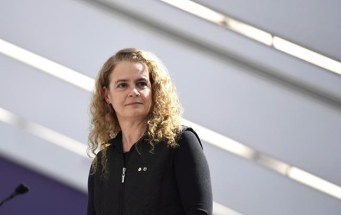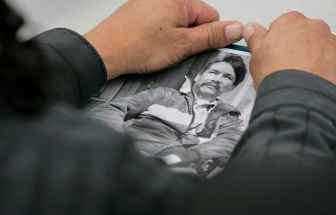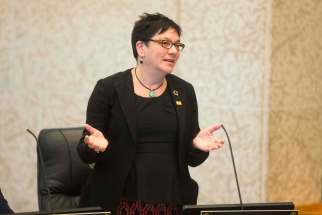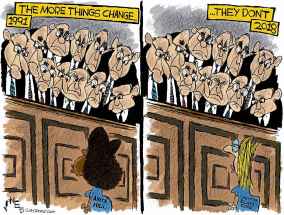Children’s advocate decries province’s slow response to rise in meth abuse
Read this article for free:
or
Already have an account? Log in here »
To continue reading, please subscribe:
Monthly Digital Subscription
$0 for the first 4 weeks*
- Enjoy unlimited reading on winnipegfreepress.com
- Read the E-Edition, our digital replica newspaper
- Access News Break, our award-winning app
- Play interactive puzzles
*No charge for 4 weeks then price increases to the regular rate of $19.00 plus GST every four weeks. Offer available to new and qualified returning subscribers only. Cancel any time.
Monthly Digital Subscription
$4.75/week*
- Enjoy unlimited reading on winnipegfreepress.com
- Read the E-Edition, our digital replica newspaper
- Access News Break, our award-winning app
- Play interactive puzzles
*Billed as $19 plus GST every four weeks. Cancel any time.
To continue reading, please subscribe:
Add Free Press access to your Brandon Sun subscription for only an additional
$1 for the first 4 weeks*
*Your next subscription payment will increase by $1.00 and you will be charged $16.99 plus GST for four weeks. After four weeks, your payment will increase to $23.99 plus GST every four weeks.
Read unlimited articles for free today:
or
Already have an account? Log in here »
Hey there, time traveller!
This article was published 21/09/2018 (2637 days ago), so information in it may no longer be current.
The Manitoba children’s advocate is encountering an increasing number of youth with methamphetamine addictions, and feels the province is lagging to provide treatment while “stuck in an ideological debate” about harm-reduction approaches.
Daphne Penrose released a three-page statement Friday, outlining various problems with access to mental health and addictions services she sees first-hand while working with children and youth.
“We have to set aside our own comfort levels as adults and service providers and listen to the voices of young people. They don’t want to be dying from their addictions — they want our help,” she wrote.
BY THE NUMBERS
Among children ages six through 12, 10.8 per cent reportedly experienced a significant mental health or addictions issue in Manitoba, as have 17 per cent of youth ages 13 to 19.
Since 2009, 143 youth died by suicide in Manitoba, including eight in August 2018.
Among children ages six through 12, 10.8 per cent reportedly experienced a significant mental health or addictions issue in Manitoba, as have 17 per cent of youth ages 13 to 19.
Since 2009, 143 youth died by suicide in Manitoba, including eight in August 2018.
According to the Office of the Chief Medical Examiner, meth-related deaths among youth and adults doubled in the last two reportable years, to 35 deaths from 17.
According to the Addictions Foundation of Manitoba, 81 per cent of female youth clients reported amphetamine as their primary drug of choice, compared with 19 per cent of male youth.
– source: Office of Manitoba Advocate for Children and Youth
In a subsequent interview, Penrose detailed a recent meeting she had with deputy ministers from Manitoba’s health and families departments, where she didn’t hear any concrete plans for improving services. Four months after the publication of the Virgo report — which examined mental health and addiction services throughout the province — she had expected more.
Penrose said she hoped her speaking publicly would bring “some sense of urgency” to decision makers.
“It isn’t a debate whether we have youth and young adults in our province who are addicted to methamphetamines. It’s not about that. We need to start talking to the youth and young adults about, ‘What do you need?’” she said.
The province introduced plans for five rapid access to addictions medicine clinics in May, but the drop-in facilities are for adults only. Penrose said there is currently nowhere for youth needing addictions treatment to turn.
She said there has been a “skyrocketing” number of meth-related overdoses, and noted the number of meth-related deaths in Manitoba doubled in the last year alone.
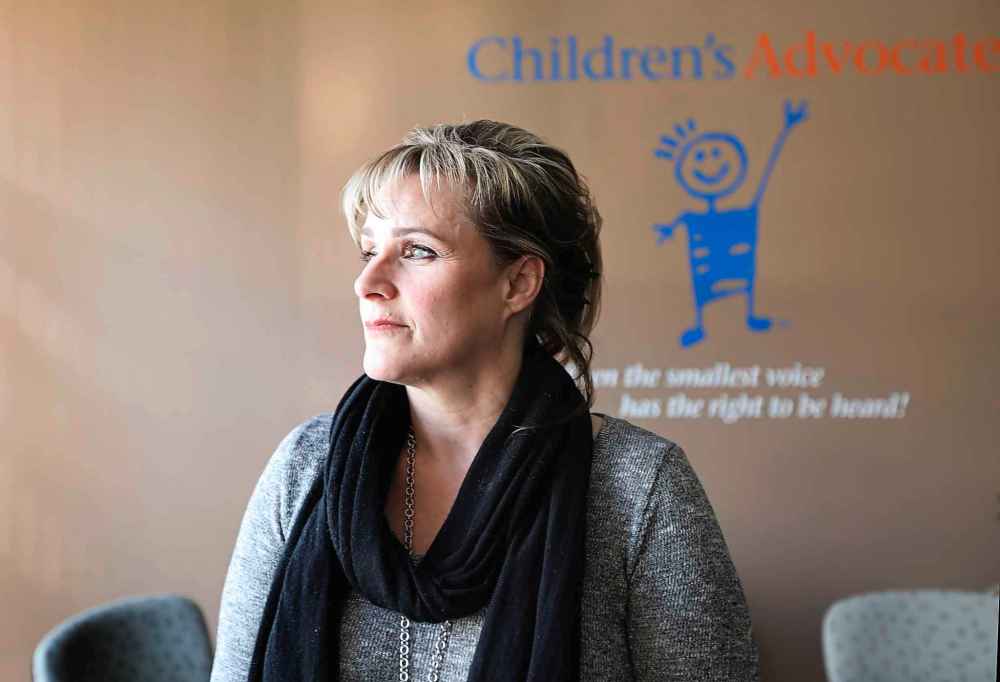
‘We have to set aside our own comfort levels as adults and service providers and listen to the voices of young people. They don’t want to be dying from their addictions — they want our help’
– Manitoba children’s advocate, Daphne Penrose
In her statement, Penrose urged the government to look at the “trauma crisis” underscoring much of mental health and addictions issues. She suggested Manitoba consider “evidence-informed harm-reduction approaches,” including clean needle exchanges and overdose prevention sites.
“While other provinces move forward in addressing Canada’s opioid crisis with a decriminalized public health approach to substance misuse, Manitoba lags behind, seemingly stuck in an ideological debate, at the grave expense of too many children and youth,” she wrote.
But when speaking to the Free Press, Penrose wouldn’t endorse the introduction of safe-injection sites outright. She said the sites should still be considered by government, though it’s repeatedly voiced opposition to the concept.
OPPOSITION RESPONDS

“The Manitoba advocate’s statement of concern is an indictment of the Pallister government’s failure to act on the mental health of children in Manitoba… There are many problems with the Pallister government’s approach. The (Virgo) report notes that this is not a new problem.

“The Manitoba advocate’s statement of concern is an indictment of the Pallister government’s failure to act on the mental health of children in Manitoba… There are many problems with the Pallister government’s approach. The (Virgo) report notes that this is not a new problem. It was a problem under the previous NDP government, as well. The Virgo report itself recognized what has long been true: ‘Systems are underfunded, the resources are spread too thin, and prevention focused efforts are often overshadowed by the ever-growing need for crisis interventions.’ The PC government is doing virtually nothing in the face of a growing crisis.”
– Dougald Lamont, Manitoba Liberal leader

“For months, the Pallister government has refused to take action to address addictions and mental health issues in our province. After ordering cuts to the Addictions Foundation of Manitoba and laying off staff at an addictions treatment facility in Portage la Prairie, the Pallister government has done nothing for months to implement the recommendations of its task force and has no plan for implementation. We echo the advocate’s call for immediate action – concrete steps to support children and youth experiencing addictions and crisis, such as the creation of a safe consumption site. The Pallister government needs to stop cutting our most essential services and invest in our children and youth.”
– Matt Wiebe, Manitoba NDP critic for education and training
“It isn’t about what I think or about what other people who don’t have addictions think. It is about the people who have addictions and what they need. I think that we really do need to start listening to them and meeting the needs that are going to help them lead healthier lives,” she said.
The advocate’s office will be monitoring the government’s plans to curb youth mental health and addictions issues going forward, plus compiling a related report.
Manitoba Health Minister Cameron Friesen was not available for an interview on the topic Friday. A government spokesperson sent a statement responding to Penrose’s assertions.
“A plan to implement other recommendations made in the (Virgo) report, including many that target youth, will be announced later this fall,” the spokesperson said.
“The health and mental well-being of all Manitoba youth is a priority our government shares with the children’s advocate. We look forward to continuing to work with her office on this important issue.”
jessica.botelho@freepress.mb.ca
Twitter: @_jessbu
THE MANITOBA ADVOCATE’S STATEMENT OF CONCERN
History
Updated on Saturday, September 22, 2018 11:00 AM CDT: minor edit




